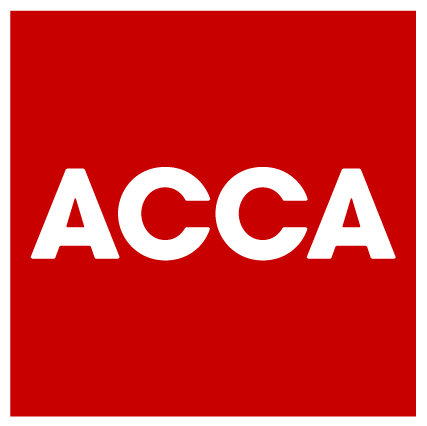Year end accounts
Year end accounts represent a critical statutory requirement for limited companies, yet the preparation process is often complex, time-consuming and demanding. At Gravesend Accounting, our comprehensive year end accounts service transforms this essential compliance obligation into straightforward professional management. With years of experience preparing statutory accounts for limited companies across Gravesend and Kent, we handle everything from detailed financial analysis through to preparing complete accounts, calculating Corporation Tax liability and filing with both Companies House and HMRC. Our thorough approach ensures accurate preparation, timely filing and complete compliance with all statutory requirements, providing complete peace of mind regarding your company's year end obligations.
How we can help you
Professional Year End Accounts Services for Gravesend Limited Companies
Year end accounts preparation is a critical statutory requirement for all limited companies, yet the process involves complex financial analysis, detailed calculation and strict compliance with regulatory requirements. At Gravesend Accounting, our specialist year end accounts service provides comprehensive support for limited companies, handling everything from detailed financial analysis through to preparation of complete statutory accounts and filing with Companies House and HMRC.
Year end accounts preparation is not simply a compliance box to tick. Properly prepared year end accounts provide a clear financial snapshot of your company’s position, form the foundation for Corporation Tax calculations and ensure complete transparency with regulators and stakeholders.
Understanding Year End Accounts and Statutory Requirements
Year end accounts, also known as statutory accounts or annual accounts, are detailed financial statements that show your company’s financial position, profitability and cash flow over the financial year. All limited companies must prepare year end accounts annually, presenting these to Companies House, HMRC and shareholders.
Year end accounts must comply with UK Financial Reporting Standards and include several key components. First, a profit and loss account showing all income and expenses during the year and the resulting profit or loss. Second, a balance sheet showing all company assets, liabilities and equity at the financial year end. Third, a directors’ report providing context and explanation of the accounts. Fourth, detailed notes to the accounts explaining accounting policies and specific line items. Fifth, unless your company qualifies for exemption, an audit report confirming the accounts have been properly reviewed.
Filing Deadlines and Regulatory Requirements
Limited companies must file year end accounts with Companies House within nine months of their financial year end. This is a strict deadline, and missing it results in automatic penalties increasing from £150 for minor delays up to £1,500 for delays exceeding six months.
For active trading companies, accounts must also be filed with HMRC as part of your Corporation Tax return. HMRC has separate filing deadlines and requirements from Companies House, and submissions must be made to both regulators.
The first set of accounts for a newly incorporated company is due within twenty-one months of incorporation, providing a longer initial timeframe. Subsequent year end accounts follow the standard nine-month deadline from your established financial year end.
Our Comprehensive Year End Accounts Service
Our year end accounts service encompasses everything required to prepare and file your accounts professionally and on time. We take complete responsibility for the year end accounts process, handling all financial analysis, calculation and regulatory filing.
Our service includes detailed review of your company’s financial records and bookkeeping, reconciliation of bank accounts and outstanding transactions, preparation of detailed trial balances and adjustment entries, calculation and presentation of profit and loss accounts showing all income and expenses, preparation of balance sheets showing all company assets and liabilities, detailed notes to accounts explaining accounting policies and specific figures, calculation of all necessary provisions and adjustments required by accounting standards.
We also prepare detailed Corporation Tax calculations including identification of all Corporation Tax reliefs and allowances applicable to your business, preparation of complete statutory accounts for filing, pre-filing review and approval discussion with you, filing of completed accounts with Companies House and HMRC, and provision of full copies of your filed accounts.
Audit Exemptions and Abridged Accounts
Most small and medium-sized companies qualify for audit exemption, meaning they are not required to have their accounts audited by an external auditor. This exemption significantly reduces year end accounts preparation costs and administration.
Additionally, small companies and micro-entities may file abridged accounts with Companies House rather than full accounts, simplifying the financial information publicly disclosed. However, even if filing abridged accounts with Companies House, active trading companies must still file full accounts with HMRC as part of their Corporation Tax return.
We assess your company’s circumstances to determine what format of accounts you must file and advise on which filing options are most appropriate for your business.
Dormant Company Accounts
Some limited companies operate as dormant companies with no significant financial activity during the year. Dormant companies file simplified accounts with Companies House and do not require Corporation Tax returns or HMRC filings.
We determine whether your company qualifies as dormant and prepare appropriate dormant accounts where applicable, significantly simplifying your year end filing requirements.
Corporation Tax Calculation and Tax Planning
Preparing year end accounts directly feeds into Corporation Tax calculation. The profit shown in your accounts, adjusted for specific tax purposes, determines your Corporation Tax liability.
As part of year end accounts preparation, we calculate your precise Corporation Tax liability, identify all available tax reliefs and allowances, implement tax planning strategies to optimise your tax position and advise on Corporation Tax payment arrangements. This integrated approach means your year end accounts preparation includes strategic tax planning to minimise your tax burden.
Directors’ Report and Compliance Disclosures
Year end accounts must include a directors’ report providing context and explanation of your company’s financial performance. This report discusses business activities, financial position, important events during the year and future outlook.
Modern accounting standards also require various mandatory disclosures within the accounts, including disclosures relating to going concern status, risk management, related party transactions and various compliance matters. We ensure all required disclosures are included and properly explained within your accounts.
Related Party Transactions and Transfer Pricing
If your company conducts transactions with related parties such as directors, shareholders or associated companies, these require specific accounting treatment and disclosure. We manage related party transaction accounting and ensure proper documentation and disclosure.
For companies with international transactions, we advise on transfer pricing requirements and ensure pricing of related party transactions is commercially justified and documented appropriately.
Subsidiary Company and Group Accounts
If your company has subsidiary companies or is part of a larger group, group consolidation requirements may apply. We prepare consolidated group accounts where required and manage the complexities of group accounting and reporting.
Post Year End Adjustments and Finalisation
Year end accounts may require adjustments for events occurring after the financial year end but before account finalisation. We identify these adjusting events and ensure appropriate accounting treatment.
We also manage post year end issues such as settlement of outstanding liabilities, receipt of invoices for year end costs and identification of contingent liabilities requiring disclosure in the accounts.
Getting Started with Gravesend Accounting Year End Accounts Services
Whether you are preparing year end accounts for the first time, seeking to improve your current accounts preparation process or facing challenges with accounts filing deadlines, Gravesend Accounting provides expert guidance and comprehensive support.
We begin with a consultation to understand your company’s structure, business activities and current accounts arrangements. We then gather all necessary financial information and prepare your year end accounts professionally and accurately.
We offer flexible consultation options, including face-to-face meetings at our Gravesend office and convenient online discussions to suit your schedule. Contact Gravesend Accounting today to discuss your year end accounts requirements and ensure timely, accurate filing with Companies House and HMRC.
Frequently asked questions (FAQ)
What is the deadline for filing year end accounts with Companies House?
Limited companies must file their year end accounts with Companies House within nine months of their financial year end. This deadline is strict and automatic penalties apply if you miss it. The first penalty is £150 for minor delays, increasing to £375 for delays between one and three months, £750 for delays between three and six months, and £1,500 for delays exceeding six months. For newly incorporated companies, the first set of accounts is due within twenty-one months of incorporation rather than the standard nine-month deadline. We manage all year end accounts deadlines carefully, ensuring your accounts are filed well before the deadline to prevent penalties and regulatory issues.
Can my small limited company file simplified accounts instead of full statutory accounts?
Small companies and micro-entities may file abridged or simplified accounts with Companies House rather than full statutory accounts. Abridged accounts require only a balance sheet and necessary notes, significantly simplifying the financial information publicly disclosed. However, if your company is active for Corporation Tax purposes, you must still file full detailed accounts with HMRC as part of your Corporation Tax return, regardless of your company size. We assess your company circumstances to determine what format of accounts you must file and advise on which filing options are most appropriate for your situation.
Do I need to have my accounts audited before filing with Companies House?
Most small and medium-sized companies qualify for audit exemption, meaning they are not required to have external auditors review their accounts. Audit exemption significantly reduces year end accounts preparation costs and administration. Companies only require statutory audits if they exceed specific size thresholds set by UK accounting standards. However, even if your accounts are not audited, they must still be prepared in accordance with UK Financial Reporting Standards and include all required disclosures and notes. We prepare accounts that meet all standards whether audit exemption applies to your company or not.
What accounting records do I need to provide for year end accounts preparation?
To prepare your year end accounts, we require detailed financial records including bank statements for all company bank accounts covering the entire financial year, invoices issued to customers or clients for all business income, supplier invoices and receipts for all business expenditure and purchases, credit card statements and records of additional expenses, payroll records showing all employee salaries and related costs, details of any loans or borrowings and interest paid, records of fixed assets purchased during the year and any assets disposed of, details of stock or inventory held at the financial year end and records of any related party transactions or significant business transactions requiring explanation. The more detailed and organised your financial records, the more efficiently we can complete your year end accounts.
What is the difference between accounts filed with Companies House and accounts filed with HMRC?
Accounts filed with Companies House are statutory accounts that comply with UK Financial Reporting Standards and may be simplified or abridged if your company qualifies. These accounts become public documents available for anyone to view. Accounts filed with HMRC must be full detailed accounts regardless of your company size, as HMRC requires complete financial information for Corporation Tax purposes. Additionally, the two regulators have different filing deadlines and specific requirements. For active trading companies, you typically prepare one comprehensive set of accounts but may present different versions to the two regulators. We manage these different requirements and ensure compliance with both regulators' specific expectations.
Book A Consultation
At Gravesend Accounting, we much prefer to talk to you about your accounting needs.
30 Min Face-to-Face Meeting
Schedule a Phone Call
Who we serve
At Gravesend Accounting, we much prefer to talk to you about your accounting needs.
Sole Traders
Landlords
Dentists
Builders

